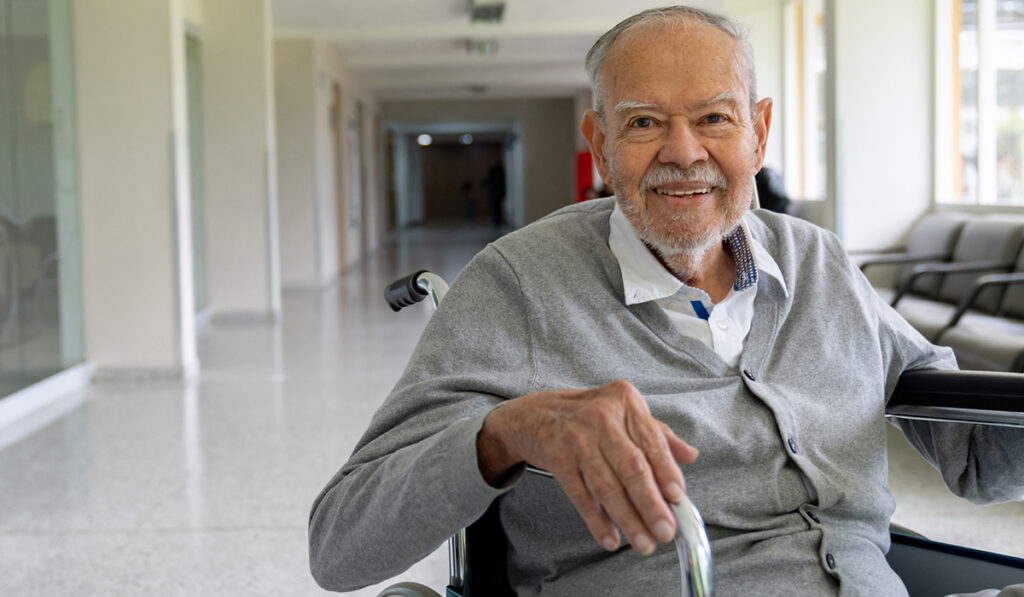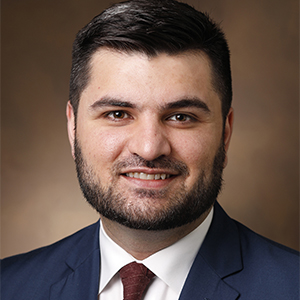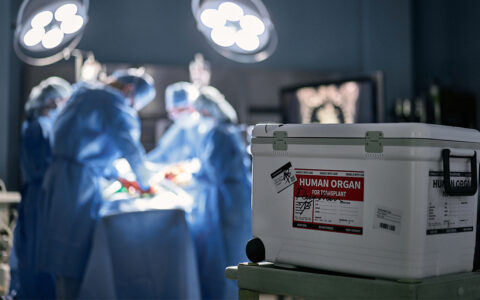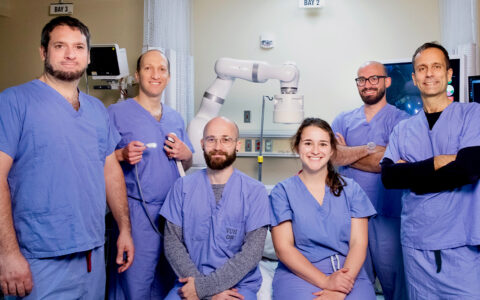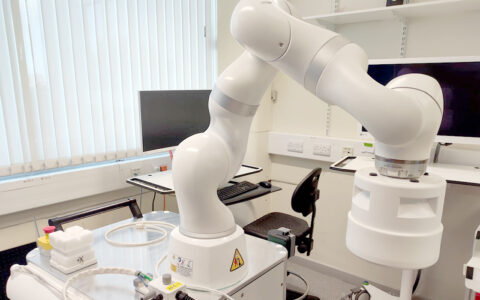Colectomies have undergone an evolution in recent decades – from open surgeries to laparoscopic to robotic procedures. Now, Vanderbilt University Medical Center has introduced ambulatory colon resection, which allows a patient to schedule a morning colectomy and return home by late afternoon.
Serving patients with colorectal cancer, diverticulitis and inflammatory bowel disease, Aimal Khan, M.D., a colorectal surgeon, has been working with Matthew McEvoy, M.D., medical director of the Perioperative Consult Service and vice chair of perioperative medicine, to build and expand a same-day colectomy program at Vanderbilt.
After learning about the limited experience of other surgeons in Texas in early 2022, Khan pitched the idea of ambulatory colectomy to McEvoy, who also serves as medical director of the Enhanced Recovery After Surgery (ERAS) program and High-Risk Surgical Encounter (Hi-RiSE) Preoperative Optimization Clinic at Vanderbilt.
“It dovetailed with our ERAS work to refine anesthesia, pain medication and other early recovery protocols for shorter hospital stays and less addiction risk,” Khan said.
ERAS Paved the Way
The enhanced recovery protocols implemented at Vanderbilt since 2014 are associated with significant reductions in both length of hospital stay and complications. Vanderbilt has been one of the key institutions to evaluate its clinical merit. So far, eight ERAS clinical pathways have been approved for major surgical procedures on the adult side and seven on the pediatric side.
Khan says that typically colectomy has required a three- to five-day in-hospital recovery period to ensure that the patient was stable after anesthesia, had pain under control, and had no surgical site infections. Following ERAS implementation, that period was shortened to 1-3 days, with improved outcomes seen in patients undergoing colon or rectal resection, Khan said.
“As more surgeons have come on board after receiving their primary training in minimally invasive surgical techniques, further shortening the end-to-end process seemed a natural outgrowth of that evolution,” Khan noted.
Why It Works
Requiring a less-than-1 cm incision made through the skin and tissue planes to the colon, the damage is slight that typical pain relief consists of simply numbing up the internal walls through a transverse abdominis plane or rectus sheath block. The patient emerges from anesthesia also with minimal pain, McEvoy said.
“Over time, we’ve gotten to the point where we use shorter-acting anesthetics, less sedation, and more use of regional nerve blocks to numb the area where the surgical incision is,” McEvoy said. “Patients wake up more quickly and have less postoperative nausea and vomiting. While we carefully attend to pain control, they tend to feel better with significantly less opioid medication than in the past.”
Less anesthesia may also lower the patient’s risk of post-operative delirium, which has the potential to set recovery back by days. By avoiding an overnight stay, the patient’s risks of nosocomial infections also are reduced.
“If there are any issues, they can come back. That has not happened so far.”
Time required is equivalent for both procedures, and patients remain in recovery for just a few hours, where they are given liquids and food under observation.
“We make sure they are able to walk out of the recovery room, and then they are on their way home with all the medications they need,” Khan said. “There is no burden on the caregiver, nothing that needs to be attended to that night. We follow up with them the next day to see how they are doing and if there are any issues, they can come back. That has not happened so far.”
Candidates and Contraindications
A patient’s general health status is a variable that may impact decisions around ambulatory surgery.
“A good chunk of our patients have good health overall and good healthy literacy, but for those who are at a higher risk for complications, overnight stays are still necessary,” McEvoy said. “These may include patients who are malnourished, anemic, smoking, or of extreme weight or age, who have heart failure or obstructive sleep apnea.”
For qualifying patients, Khan said it is a win-win situation for them, the hospital and the community.
“Better outcomes and satisfaction are the core of what our ERAS efforts are all about.”
“Keeping hospital beds available for those who must have them and sending healthier surgical patients back to the safety and comfort of their home with better outcomes and satisfaction are the core of what our ERAS efforts are all about,” Khan said. “Our success rates to date are hard to argue with.”
